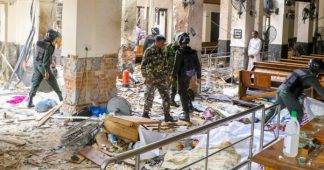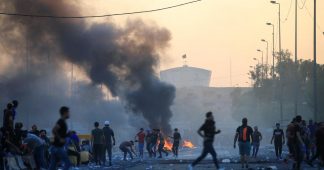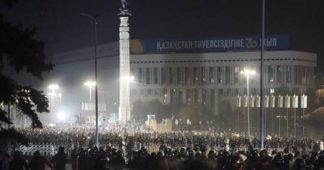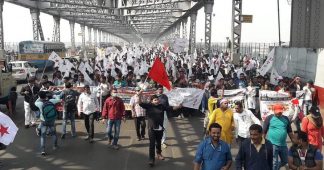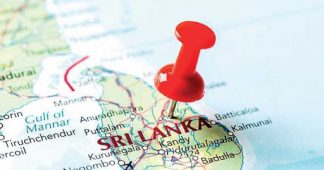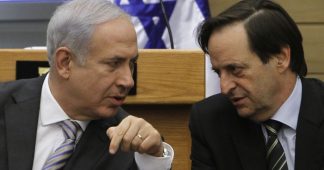By Lasanda Kurukulasuriya
The ongoing anti-government protests taking place in Sri Lanka today are extraordinary, and unlike anything this country has seen before. Protests that started in response to an acute economic crisis have now evolved into a call for a complete system change, a rejection of ruling political elites whom protesters blame for beggaring the country at the people’s expense. The rallying call of this political revolt is “Gota go home!,” demanding that President Gotabaya Rajapaksa step down, along with his relatives holding high office.
The participants in this new wave of protests come from all walks of life, cutting across all social strata in terms of race and class. Ironically they include the constituencies that voted this government into power – the 6.9 million comprising youth, working class, professionals, artists, daily-wage labourers, business people, farming and fisher communities among others. Significantly, they seem to reflect an erosion of the government’s main support base among the Sihala Buddhist majority. Prominent members of the clergy who helped bring the government to power now accuse it of betraying people’s trust, and support the protesters. Presidential candidate Gotabaya’s election manifesto 2 ½ years ago promised people ‘Vistas of Prosperity and Splendour,’ but what they’ve got is adversity. During the election campaign that followed the 2019 Easter terror attacks, people asked for security, what they got was surveillance.
Has President Rajapaksa finally, unintentionally, united the country – in a movement that has come together to dislodge him? Public anger has arisen not only over increasing economic hardships caused by grievous mismanagement under his watch, but a sense that graft and corruption continue, with the crisis itself being exploited by the powerful and their cronies. The Prime Minister, Minister of Finance and Minister of Irrigation were the president’s brothers, and his son the State Minister of Digital Technology. Cabinet ministers handed in resignation letters to Prime Minister Mahinda Rajapaksa a few days after an incident on 31 March, where a peaceful protest turned violent outside the president’s house in Mirihana. Police fired tear gas and water cannon, dozens were injured and over 50 reportedly arrested. In an unprecedented show of support, hundreds of lawyers appeared at the court house to offer their services free of charge to those arrested, when they were produced before a magistrate the following day.
In the next two days government declared a state of emergency, imposed an island-wide 36 hour curfew and blocked social media (all later withdrawn). The excessive measures pointed to a failure on the part of rulers to understand public sentiment and the changing political climate. Significantly, protests by opposition political parties and groups of citizens continued on Sunday (3) at numerous locations, with total disregard for the curfew.
Events that followed the cabinet resignations suggest the move may be a ploy to buy time. Four previous ruling coalition ministers were reappointed as ministers. The president invited “all political parties representing in the Parliament to come together to accept ministerial portfolios in order to find solutions to this national crisis.” His invitation was rejected by the main opposition parties. Fourteen MPs of the Sri Lanka Freedom Party (SLFP) quit the ruling Sri Lanka Podu Jana Peramuna (SLPP) coalition. They, along with 10 other smaller coalition partners and some disillusioned SLPP MPs now form an ‘independent group’ of 41. They could be decisive in tilting the balance in the 225-member House. As SLFP general secretary MP Dayasiri Jayasekara told reporters at a televised news briefing, “People may protest in the street but the problem has to be resolved by the president and parliament. People’s demand is for a government and cabinet without Gota, if that is not done the protests will certainly continue.”
Constitutional provisions
There are constitutional provisions for an incumbent president to step down. Foreign Minister G L Peiris, briefing Colombo-based diplomats said they included “the prime minister taking over for 60 days … after which the MPs would have to elect a suitable leader among them to lead the country for the remaining period until an election can be held.”
Meanwhile protests continue to be reported from all parts of the country, with frustrated citizens demanding fuel, cooking gas, essential foodstuffs and medicines. With foreign reserves hitting rock bottom and the coffers empty, disruption in fuel supply has brought on power cuts, hobbling industries and inconveniencing the public.
A protest that started on Saturday (9) at Galle Face Green, Colombo’s landmark promenade overlooking the Indian Ocean, was into its fourth day by Tues (12). It has attracted thousands from Colombo as well as other parts of the country. The fluid and spontaneous nature of the ongoing demonstration was evident in the sight of people entering or leaving the grounds at will, in groups, families, couples or individually. Later that evening TV footage showed protesters undeterred by rain, keeping up their chanting through the night, with passing motorists honking horns in support.
The barricaded presidential secretariat building nearby has become a site for some raucous slogan chanting. Home-made placards, in different sizes, languages and styles, are scrawled with demands, exhortations and admonishments, laced with a good dose of humour. While “Gota Go Home” is the leitmotif, a large share of public anger is also directed against the president’s brother, Finance Minister Basil, who was absent from parliament for months before he resigned. Groups chanting “Kaputu kaak kaak kaak kaak – basil, basil, basil, basil!” are heard at various points along the Green. (‘Kaputa’ means crow in Sinhala.) Another chant (in translation) was “We have no colour, we have no party, we all got together.” Social media has played a role in bringing tech-savvy youth together (“You messed with the wrong generation!”). Many who spoke to TV reporters expressed disgust with politicians who have throughout history exploited race, caste and religion to create divisions in society in order to stay in power.
Will Gota go home?
The president, having indicated he has no intention of stepping down, has challenged the opposition to prove its a majority in parliament. The main opposition Samagi Jana Balavegaya (SJB) says it is collecting signatures for an impeachment motion against the president and a no confidence motion against the government. SJB leader Sajith Premadasa has called for abolition of the executive presidency. The ‘independent group’ of 41 wants abolition of the 20th amendment introduced soon after Gotabaya’s election, that vested more powers in the presidency and removed independent commissions that kept a check on executive power.
The 20th amendment also removed a clause that prevented dual citizens from holding high office. This paved the way for Basil Rajapaksa, who holds both US and Sri Lankan citizenship, to enter parliament. The abolition of the 20A resonates with the “Go Home” slogan of protesters, mistrustful of the US links of both Basil and his brother, the president – whose son lives in the USA. (“Son, call your father home” read one placard.). Gotabaya renounced his US citizenship in order to contest the election. Many protesters’ comments aired on TV expressed the feeling that the Rajapaksas have ‘other homes’ and ‘enough money,’ so they should ‘go home’ and let those who are more capable run the country. Some go further, demanding that ‘stolen money must be returned’ and that Rajapaksas be sent to jail. It’s clear that whatever political capital the once-popular, war-winning former president Mahinda accumulated, has been squandered by his brothers.
The government’s counter moves to shore up support have seen some scattered pro-Gotabaya protests emerge. The uniformity of the placards, of the same colour with neatly printed slogans, suggest that these events were politically choreographed. Some sought to discredit the ongoing mass agitation as an activity of “whiskey-drinking Colombo kids” etc. These actors forget that the anti-government protest wave started with farmers demanding fertilizer, after the fertilizer subsidy was withdrawn by government. Though the president’s move to ban chemical fertilizer imports had a worthy objective of introducing organic farming, the ill-planned, rushed scheme failed. Resulting crop failure has worsened the plight of debt-strapped farmers.
It was against this backdrop that the Prime Minister announced, during an ‘address to the nation,’ that the import of chemical fertilizer would be resumed. This could be seen as a shrewd attempt to remove an important rural constituency from the ranks of protesters. That same day the president appointed an SLFP MP from the ‘independent group’ as State Minister for the promotion of organic farming. This is the first crack to appear within the dissident group. Will others follow? The House has seen opposition MPs putting themselves up for auction many times before, at critical moments.
For the first time, Sri Lanka is on the verge of a sovereign debt default. A new Central Bank governor has announced there will be a ‘temporary suspension of foreign debt payments,’ so that limited foreign exchange could be used to buy essentials. Negotiations for an IMF bailout are about to start. It is a moment of great uncertainty for the country – yet the unstoppable wave of energy on the street signals hope as well.
We remind our readers that publication of articles on our site does not mean that we agree with what is written. Our policy is to publish anything which we consider of interest, so as to assist our readers in forming their opinions. Sometimes we even publish articles with which we totally disagree, since we believe it is important for our readers to be informed on as wide a spectrum of views as possible.
